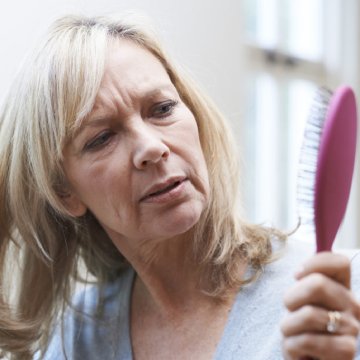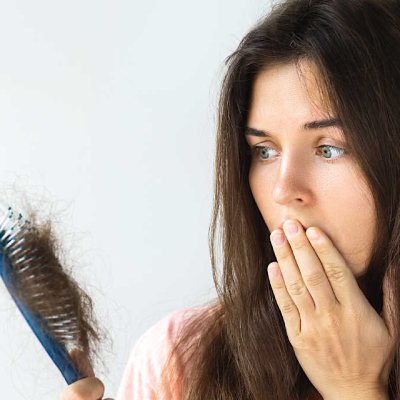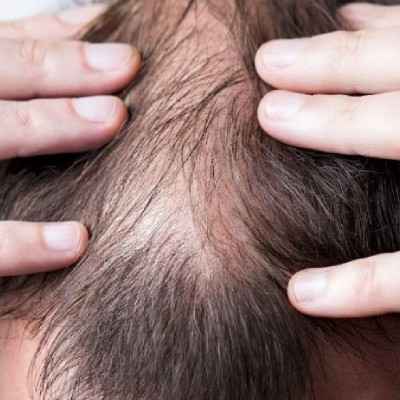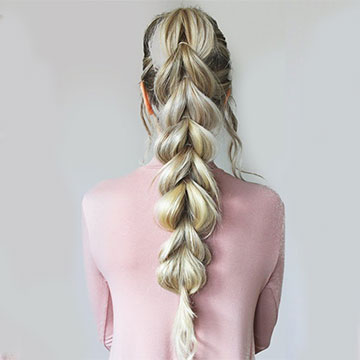5 Things You Should Know About Hair Loss During Menopause

14 August 2019

Hair Experts @ AHS

Loss of hair will somehow affect your confidence level and make you feel self-conscious. Stress, illness, PCOD or low level of nutrients in the body also result in hair loss.
Loss of hair will somehow affect your confidence level and make you feel self-conscious. Stress, illness, PCOD or low level of nutrients in the body also result in hair loss. All women experience menopause at a later stage of their life. As a female starts aging, many physical and hormonal changes take place as the body prepares itself for menopause. Hot flashes, mood swings, and insomnia are very common symptoms that every woman will experience during this phase. However, menopause also causes hair fall in women.
Many females might notice large clumps of hair falling out while combing or showering. But, there are some hair loss treatments available by which you can keep your hair healthy and strong during menopause.
1. Cause of hair fall during menopause
95% of the hair fall conditions are due to Androgenetic Alopecia but hair loss during menopause is mainly caused because of fluctuating hormone levels. As the production of estrogen and progesterone lowers at the time of menopause, the hair growth becomes slow and hair embryonic cells become weak.
2. When to seek medical help?
You must visit a doctor if you face any of the following symptoms with the loss of hair.
- An unusual pattern of hair loss
- If you experience pain or itching along with the hair fall
- The scalp looks red and scaly or abnormal in any way.
- You develop acne and facial hair
3. Prevent hair loss during menopause
- Reduce stress
- Regular exercise
- Develop healthy eating habits
- Drink lots of water
- Stay away from styling methods
- Choose right hair treatment
- Increase the intake of Vitamin A, B, C, D, iron, zinc, and protein in the diet
4. Process of hair regrowth
The appearance of menopausal hair loss can be improved by various cosmetic practices such as reducing the use of hair styling tools, hair sprays, etc. Doing this along with using a good shampoo and conditioner might also help a little. The results seen after taking such medication is temporary. Variety of oral medications are available in the pharmacy but they do have numerous side effects which might result in further hair loss. One must speak to the consulting doctor or your hair expert if significant hair loss is noticed after taking the medicine.
5. Should you take hair supplements?
It is important for women to understand that menopausal hair loss is not a medical disorder and can be treated by improving nutritional health and using cosmetic options. Hair supplements might be helpful if you fail to get the necessary vitamins through diet. Before taking any supplement a woman must know whether she is deficient or not because excess doses of certain vitamins and minerals can be harmful if you are not deficient.
Conclusion
Menopausal hair loss causes anxiety and is displeasing for any women. Improving general and nutritional health may help slow hair loss but that will not curb out the problem. There are many hair treatments available but you need to choose wisely. Therefore, if you are looking for a permanent solution, then you must go for hair restoration procedures offered by AHS. The experts will first analyze your particular condition and then will recommend you the best solution.
Stay Updated
Subscribe to our email newsletter for helpful tips and valuable resourses
Be an influencer
Join forces with Advanced Hair Studio! Explore exciting collaboration opportunities tailored for influencers. Let's redefine haircare together.
Connect now












